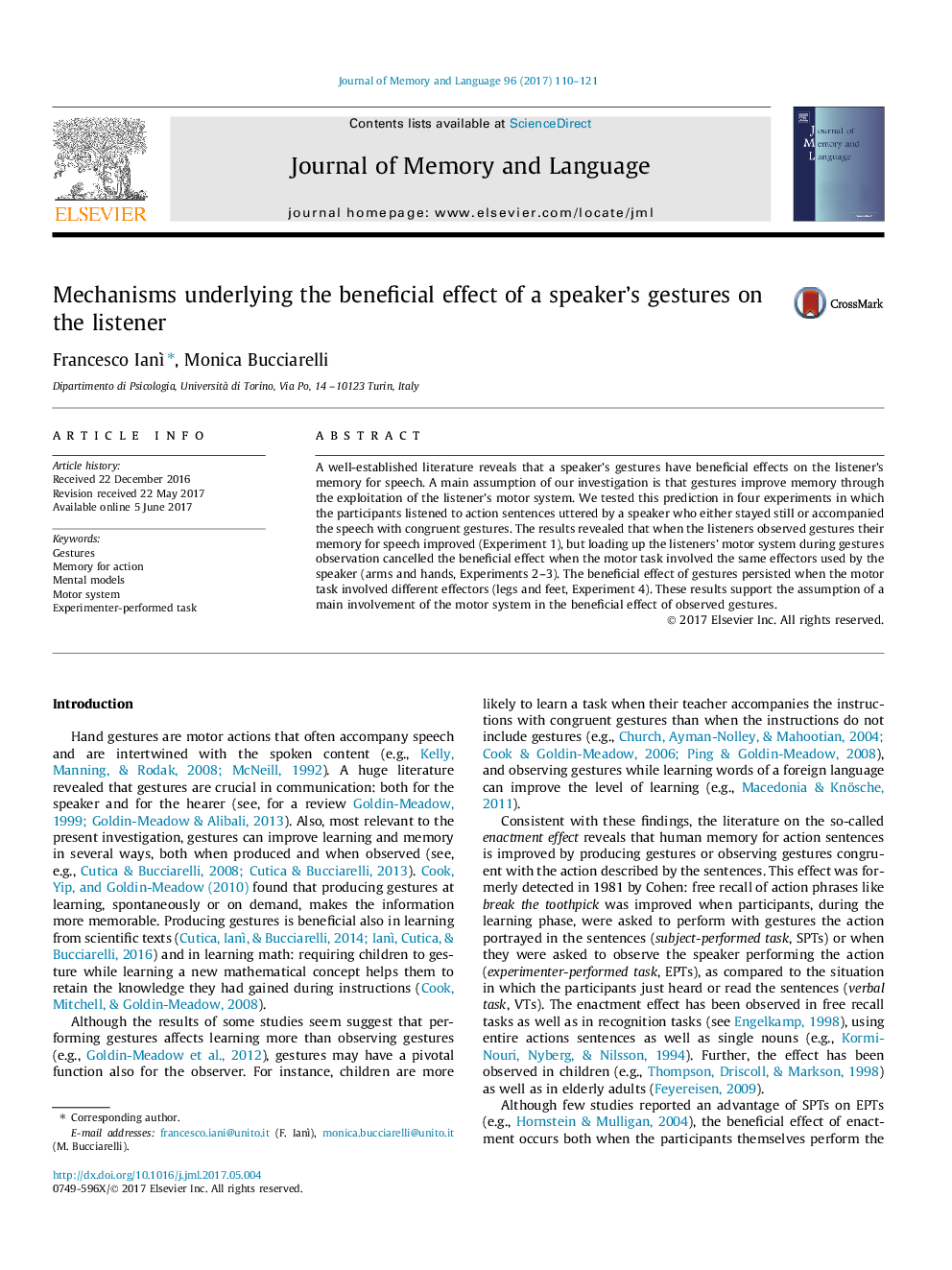| Article ID | Journal | Published Year | Pages | File Type |
|---|---|---|---|---|
| 5042562 | Journal of Memory and Language | 2017 | 12 Pages |
â¢The co-speech gestures of a speaker favor memory for speech in the listener.â¢The effect is detectable also in memory for action sentences (enactment effect).â¢The listener's motor system as a causal role in the enactment effect.â¢Loading up the listener's motor system cancels the enactment effect.
A well-established literature reveals that a speaker's gestures have beneficial effects on the listener's memory for speech. A main assumption of our investigation is that gestures improve memory through the exploitation of the listener's motor system. We tested this prediction in four experiments in which the participants listened to action sentences uttered by a speaker who either stayed still or accompanied the speech with congruent gestures. The results revealed that when the listeners observed gestures their memory for speech improved (Experiment 1), but loading up the listeners' motor system during gestures observation cancelled the beneficial effect when the motor task involved the same effectors used by the speaker (arms and hands, Experiments 2-3). The beneficial effect of gestures persisted when the motor task involved different effectors (legs and feet, Experiment 4). These results support the assumption of a main involvement of the motor system in the beneficial effect of observed gestures.
